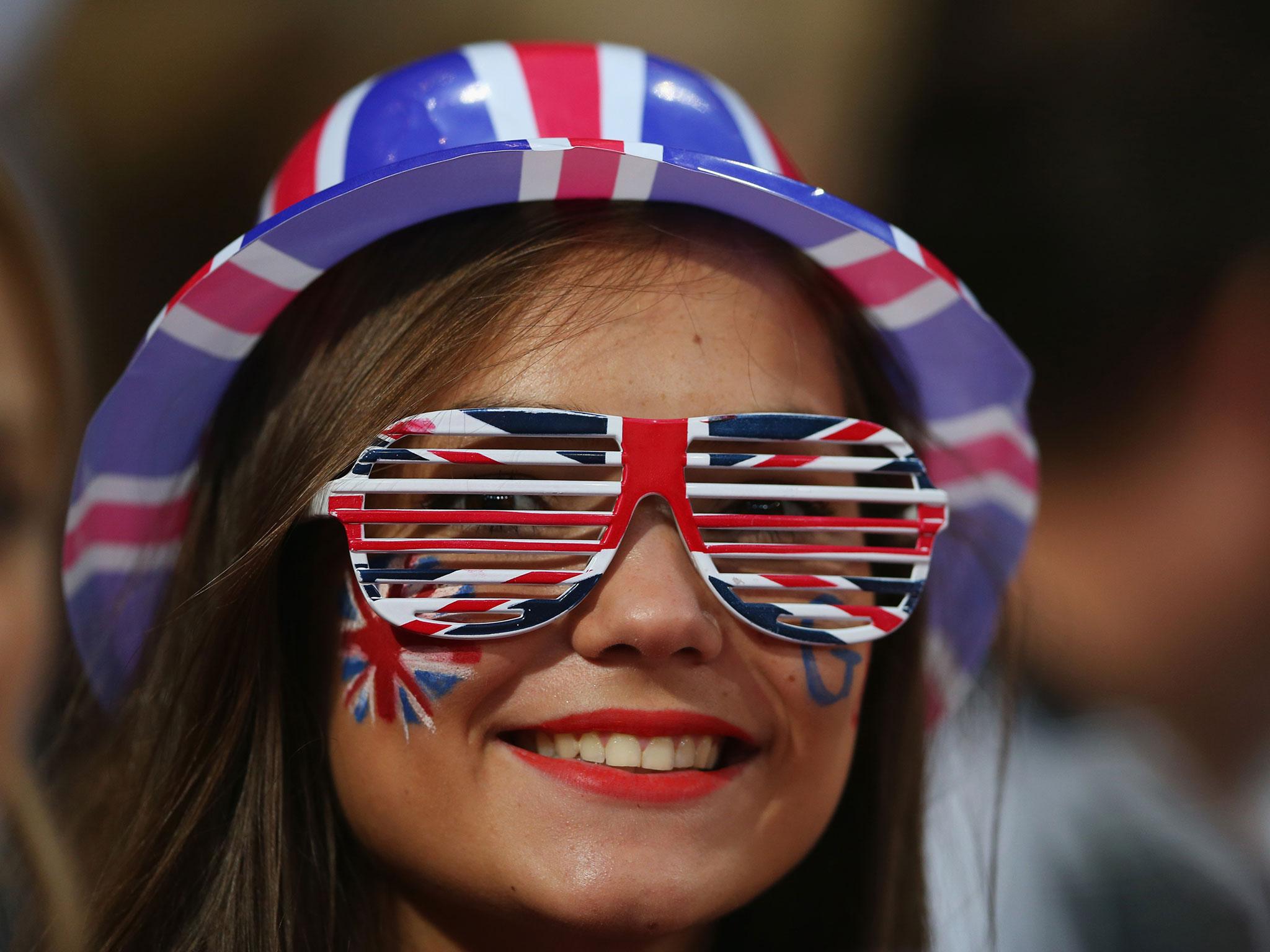Union Jack cushions aren’t just cute accessories – there’s danger in the fad for ‘nationalist chic’
Kitsch is sedative: it defeats all meaningful thought, including respect

I blame the Union Jack cushions. The problem with cushions is that they are inherently harmless and trivial. If you get upset about cushions, people will say, quite reasonably: “Why are you getting so upset? It’s only a cushion.” The harmlessness and triviality of cushions make them perversely important. They’re in our homes, on our sofas. Their innocuousness makes them a test of the very imagery and ideas we deem innocuous. And earlier this century the Union Jack became a very popular design.
It’s hard to be sure, but I would trace the beginning of this trend to 2002, the year of the Queen’s Golden Jubilee. The monarchy had recovered from the wobbly 1990s, national morale was high, and the cultural engines that might have been expected to dissent were in a deep rut of contentment and complacency. We had just gone into Afghanistan, and Iraq would soon follow.
Out came the Union Jack cushions – often with that pre-faded look, with some of the bite sucked from the colours, as if they had been there a while, as if we had salvaged grandpa's flag from the attic and thriftily reused it. They fitted well with the ascendant relaxed, homespun, Jamie Oliver, mainstream self-image, and were accompanied by a steady drumbeat of liberal commentary urging us to “reclaim” national symbols from the far right. (As if that might somehow discourage them – on the contrary.) And then the Union Jack swallowed the sofa: cushions were followed by Union Jack divans and chesterfields.

The drive to make the flag literally huggable is terrifying. In becoming a home decor accessory, the Union Jack has been driven deep into the realm of kitsch. This should presumably delight those commentators who called for its reclamation (cushion accomplished!) but where is the liberal dividend? Nationalism, in its least comfortable forms, is on the abundant rise everywhere we look, predictably accompanied by racism, division and hatred.
This wasn’t caused by the cushions, but the cushions were its harbinger. This isn’t a matter of style, or taste. Kitsch is lower than that. As the great American art critic Harold Rosenberg observed in 1959: “There is no counter-concept to kitsch. Its antagonist is not an idea but reality.”
Indeed, it is not representative of a thought, but an absence of thought. We can precisely map the rise of the Union Jack cushion to a rising national mindlessness: the waking dream of cultural denial and myopia that surrounds us, in which the country can forget that it is fighting wars, in which political discourse flees continually to trivia.
Now kitsch has engulfed what should be one of our most solemn symbols: the Remembrance poppy. The Royal British Legion, which should be the guardian of the meaning of the poppy, is sadly leading the effort to cheapen it. Take a look at its online Poppy Shop. Poppy merchandise has metastasised out of all control. There are poppy tea towels, dog bowls and fragrance diffusers. Not just poppies. Would you be comfortable sipping your tea from a mug covered in cheerful phrases like “Assassination of Archduke Franz Ferdinand” and “First battle of Ypres”, in cheery hand-lettering better suited to the words “World’s best Dad”?
The eruption of the poppy into garish costume jewellery and till-side knick-knacks ought to alarm us. Kitsch is sedative, it defeats thought – not just critical thought, but all meaningful thought, including respect. A culture that can slap poppies on tea towels is one that can blithely stick it on the side of fighter jets. Eventually, of course, the two world wars had to pass from memory and into history. But this is neither memory or history, and it certainly isn't remembrance.
Will Wiles is a journalist and novelist. He is the author of ‘Care of Wooden Floors’ and ‘The Way Inn’
Join our commenting forum
Join thought-provoking conversations, follow other Independent readers and see their replies
Comments
Bookmark popover
Removed from bookmarks